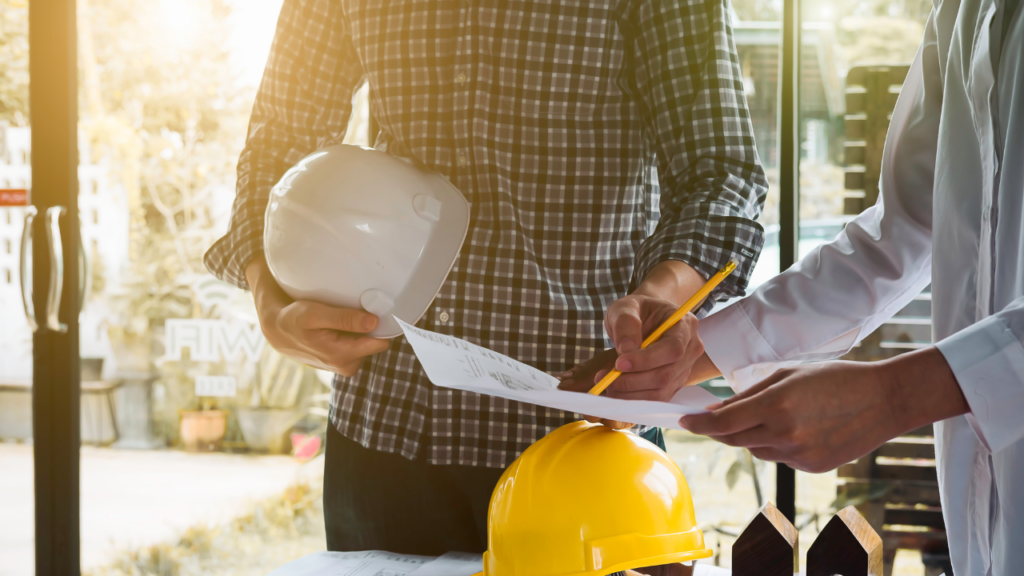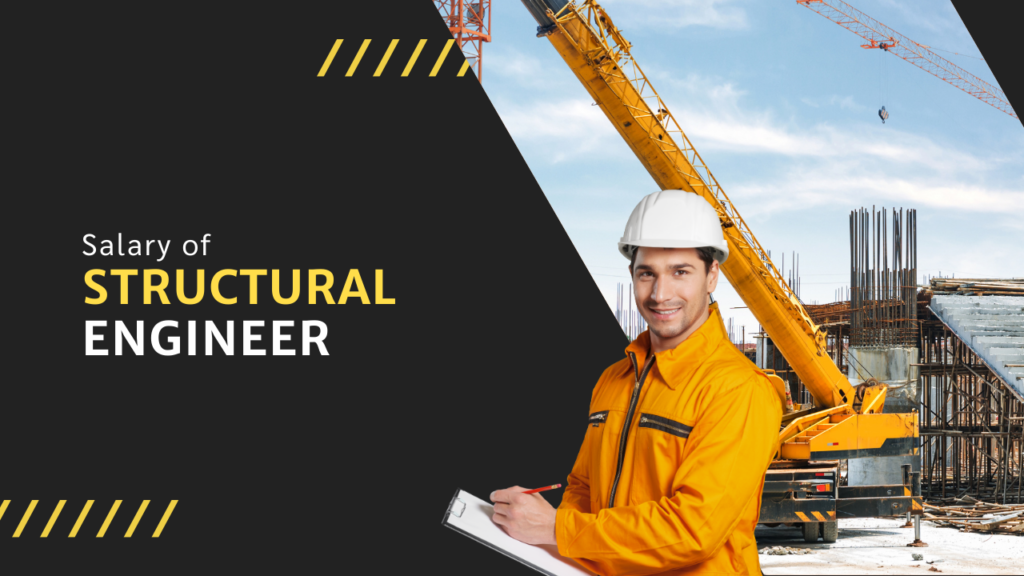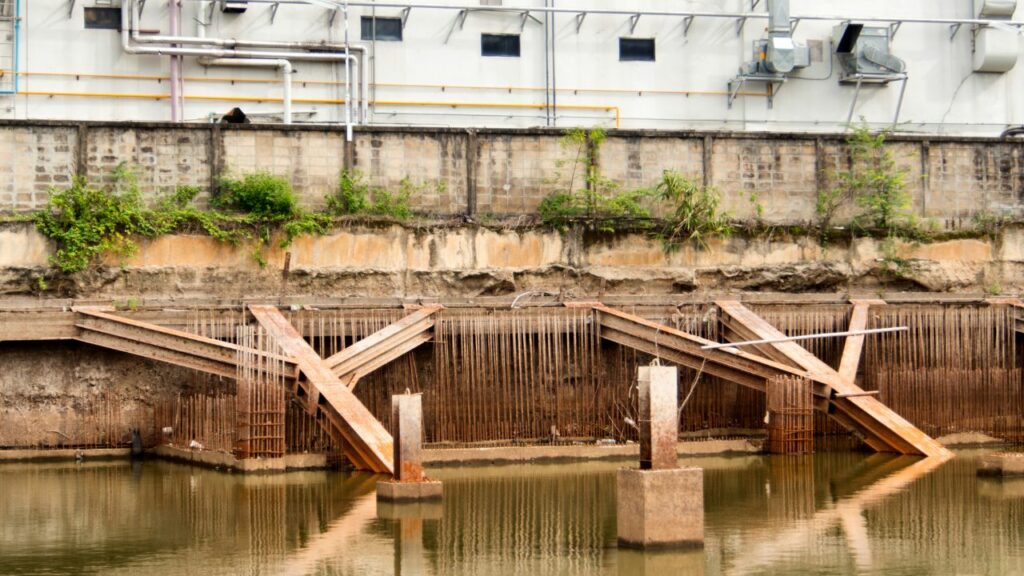To check the structural integrity and the foundations of any structure, a knowledgeable professional or a structural engineer carries out an inspection process. Their work includes checking if construction and safety codes have been followed in constructing the structure. A lot of the time, structural engineers look for load-bearing components of a structure, such as columns and beams. A structural engineer is hired to carry out these visual inspections, mostly when property owners want to remodel or redesign their property or they are questioning the integrity of the structure. The entire structure or specific elements can be analyzed according to the client’s needs.
Structural inspection can be confused with a home inspection, but the two are entirely different. A home inspection looks for any visible damage within the structure of a building or a home. Home inspections are carried out by home inspectors, who may have little knowledge about serious structural issues. Structural inspection is carried out by certified engineers who mainly look for problems within a building’s foundation and basement and if the walls and/or beams are strong enough to carry the load of the building. A qualified structural engineer can identify cracks, sinking, shifting, and any other problem with floors and walls.
Importance of Structural Engineer Inspection
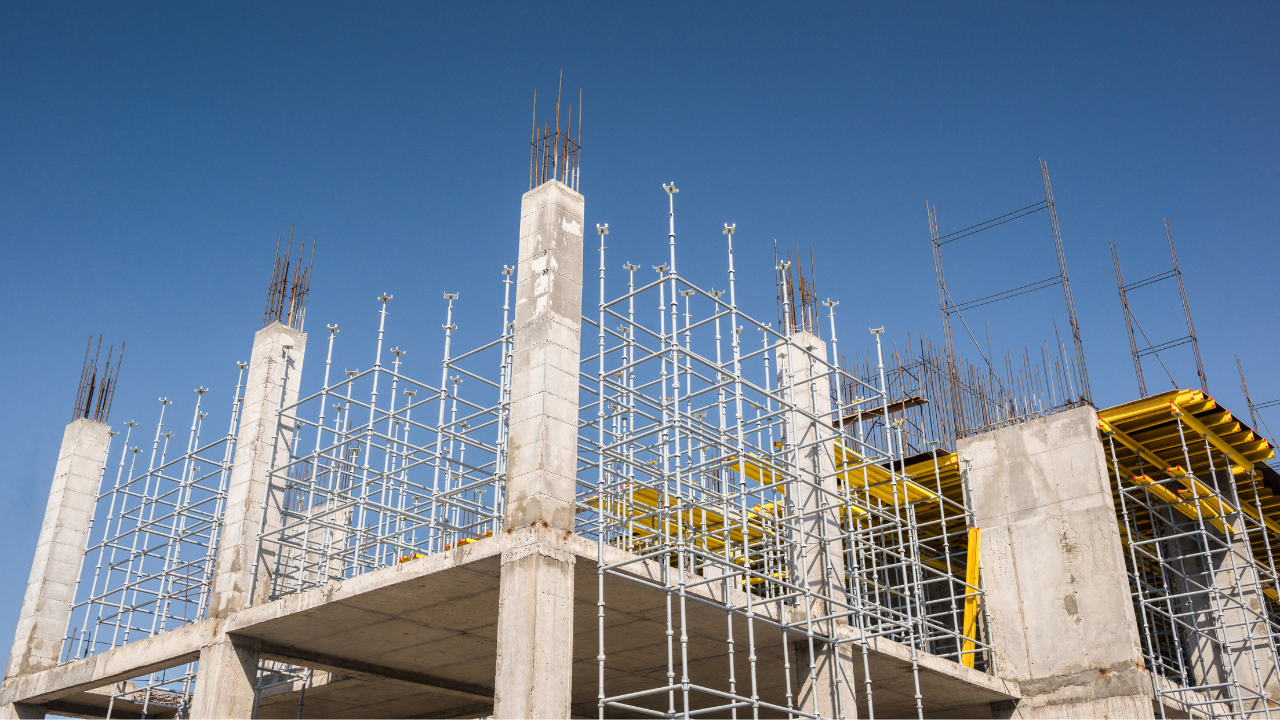
Every job has its own significance; otherwise, the jobs would not exist. Similarly, a structural engineer carries out a very important task. Their inspections are extremely important in making sure a building, or a home is safe to be occupied. That is, is the foundation of the building strong and safe enough to be inhibited by people? It is very important to make sure all safety codes have been met so that people can freely move around the building or home. And that is the importance of a structural engineer inspection.
Major accidents are avoided with the help of their examinations because older houses and properties are bound to develop issues as time passes. For example, properties, buildings, or homes in areas with a lot of moisture may see a lot of cracking or settling within the foundation of their walls and ceilings. Structural engineers are trained to identify such issues and work on how to solve them.
Therefore, a structural engineer inspection has a lot of importance. They help solve problems related to cracked or bowing foundations, cracks or settlements within walls, and wall removal. They can even add a second story to a home.
Types of Structural Engineer Inspection
Inspection is a very broad term, and with a structural engineer’s job, there are many specifications within the inspection process. To make it easier to understand, inspections are classified into different types so clients know what they want when hiring a structural engineer. Below is a table that provides a detailed description of each inspection type:
| Inspection Type | Description |
| Initial Inspection | Inspection of recently built or installed structures to ensure they meet design requirements and safety standards |
| Routine Inspection | Planned inspections to address maintenance needs and possible risks to structural integrity |
| Damage inspection | Inspection carried out after natural disasters to inspect any damage to structures |
| Forensic inspection | Inspection to study the cause of a structural collapse or mishap |
| Code Compliance Inspection | Inspection to guarantee structures are adhering to appropriate building codes and regulations |
| Quality Control Inspection | Inspection to verify the quality of materials, workmanship, and construction procedures during a project |
| Special inspection | Inspection to verify adherence with specialized requirements, such as for high-risk structures |
What Is The Inspection Process Of A Structural Engineer?
A good structural engineer follows a process when inspecting any building or property. The process is as follows:
Pre-Inspection Planning
In the pre-inspection planning session, a structural engineer and the client set up all the resources/materials that may be needed for the inspection. Pre-inspection planning also plans out quality control concerning engineering (safety codes and more). This step in the process also includes surveys and examinations of all structures as well as a rough designing stage.
Visual Inspection
The visual inspection entails the examination of the interior and exterior of the home/building. The structural engineer will take note of the building’s structures, the kinds of materials that were used, the environmental factors involved, etc.
Non-Destructive Testing (NDT)
Another step in the inspection process is NDT or Non-Destructive Testing, a testing method that is used to evaluate construction material, components, and different structures to identify any flaws and discontinuities without harming the original structure.
Load Testing
During inspections, the engineer also conducts load testing, which is a method used to check the strength of structures within a building/home. It is a test that helps identify if a specific structure can hold a certain weight or resist loads.
Analysis and Reporting
The last step in the inspection process is the analysis and the final report. Whatever information the engineer gathers in the previous steps, he analyzes it according to the situation. He then compiles all of it in a report, explaining all the observations and the conclusions he derives from it. The report also includes solutions the engineer recommends are most appropriate to solve the problem.
What Are Common Structural Engineer Inspection Projects?

Structural engineering is a branch of engineering which is why it is responsible for different projects. These projects include:
Buildings and Infrastructure
Structural engineers are almost always involved in constructing buildings and other big-scale infrastructure such as motorways and highways. They use their expertise to evaluate if the construction and structures can withstand the passage of time in all types of weather, etc.
Industrial Facilities and Equipment
In projects like this, the job of a structural engineer is to make sure the materials being used for the construction of the facility or the equipment are strong enough to withstand the types of materials it will be exposed to in the facility. Many chemicals are used in facilities, so they should be constructed with a material that will remain unaffected when exposed to these chemicals.
Bridges and Tunnels
Like other buildings and infrastructure, specifically with tunnels and bridges, engineers work to ensure bridges can sustain the weight of traffic and that tunnels are strong enough to not collapse.
Historic Structures
Structural engineers are critical when it comes to the preservation of historic buildings. Their expertise helps protect, reinstate lost features, and prolong and maintain the original character of the building or structure. In short, structural engineers play a vital role in repairing and preserving historic structures.
What Are The Required Qualifications And Skills For A Structural Engineer Inspector?
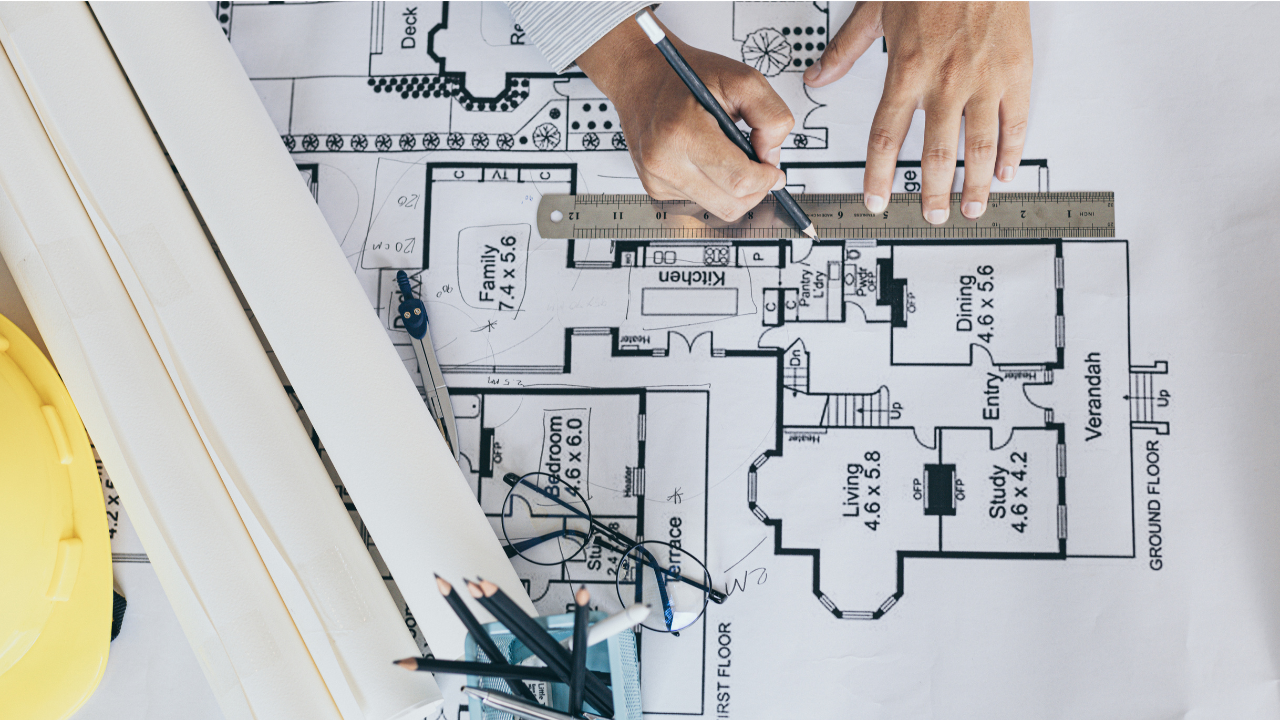
Engineering is a tough job, and since structural engineers hold so much responsibility on their shoulders, rigorous education and certification criteria are set for them. So that only the best of the best are selected. Below are some of the requirements that must be fulfilled to become a structural engineer inspector.
Education and Certifications
The basic education requirement to become a structural engineer inspector is to get a Bachelor’s and/or Master’s degree in structural engineering. Vocational experience is also required. Other than that, one can also join apprenticeship schemes and learn the skills on the job.
Next, every country requires different tests and exams to be cleared before issuing proper certifications and/or licenses. Obtaining these can also allow entry into different associations made for structural engineers or any kind of engineer.
Technical Skills
In the domain of technical skills, a good engineer must be knowledgeable and must have the ability to perform the task related to their job. Some specific skills that are needed in a structural engineer include the ability to work with and draw maps/models, being able to use CAD software, and being capable of understanding design techniques.
Communication and Interpersonal Skills
Like any other profession, communication and adequate interpersonal skills are essential for structural engineers. But the three most important ones are; structural engineers must have commercial awareness, i.e., what is happening within their industry in terms of regulations and economy; structural engineers must be good at teamwork since they have to work with people from different professions and good teamwork is key for any project, and lastly, they should be good at management and planning such as working within a budget.
Attention to Detail and Analytical Thinking
Because their work revolves around inspection and identifying potential risks and damages to property or checking if everything is up to standards, a good structural engineer must be good at paying attention to details so they do not miss anything important during inspections, and if they do see some problems, they should be good at analyzing its potential outcomes.
What Are The Benefits Of A Structural Engineer Inspection?
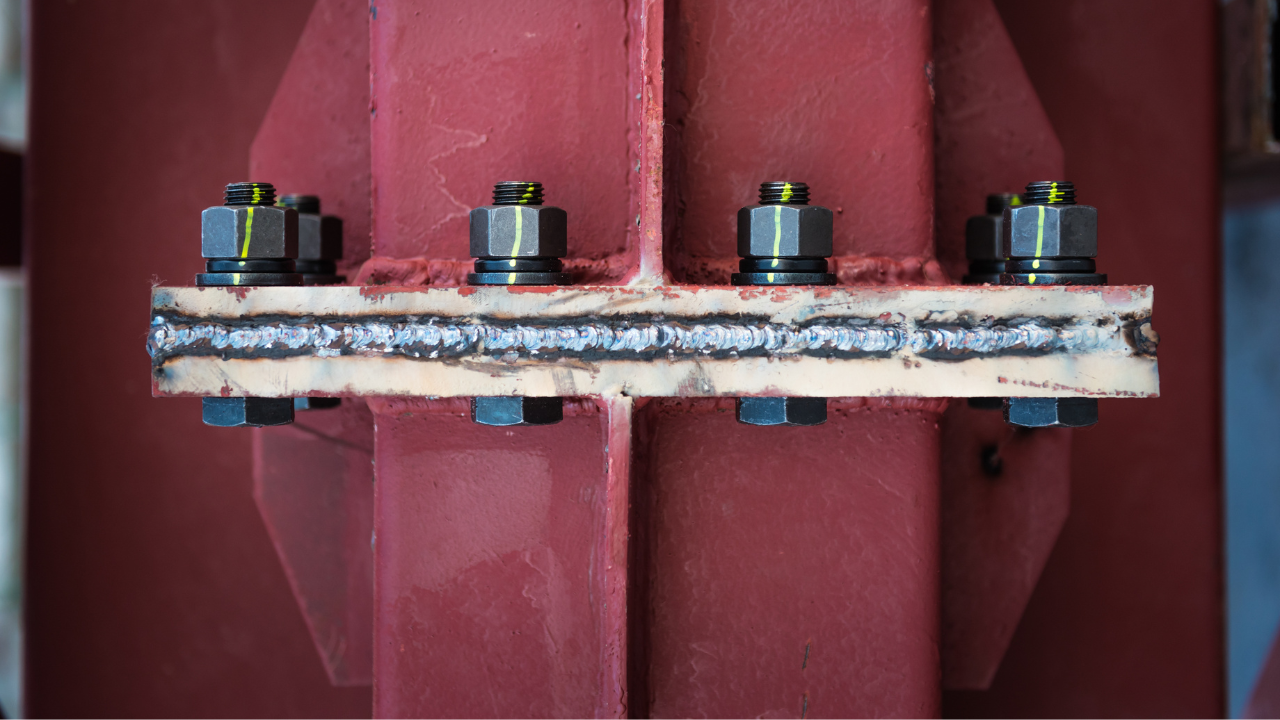
Ensuring Structural Safety
Safety is a structural engineer’s main priority. With the help of thorough inspections, you can avoid hazards or poorly built structures which may be looked over by someone with less knowledge. They make sure that your structures are safe to be used.
Identifying Potential Risks and Defects
Because of their knowledge and experience, structural engineers are very good at pinpointing potential risks and defects within a structure. Early identification allows them to be corrected before they become more prominent and costlier problems. Not only can they identify complex risks and defects, but they can also help give solutions to them as well.
Enhancing Long-term Durability and Performance
If a building or a structure is reviewed from its initial stages of construction, there is a high chance that the finished product is very safe and secure. A structure with optimal foundations has a better chance of long-term survival.
Reducing Maintenance Costs and Downtime
If potential risks and defects are identified and corrected from the beginning, it stops them from becoming more significant problems in the future. Thus, good inspections initially can help reduce future maintenance costs and downtime.
How to Hire a Structural Engineer Inspector?

When hiring a structural engineer inspector, you must be very careful when choosing. The three steps to follow when choosing are:
Finding and Evaluating Structural Engineer Inspectors
The first step is to do lots of research and find some of the best structural engineers working in your area. When you shortlist a few, you need to look at their qualifications and how much experience they have in their field. It can also be helpful to look at client reviews. Other than qualifications, it is good to look for specific skills (some of which are mentioned above). After gathering all the information, it will be easier to evaluate their strengths and weaknesses while making your choice.
Requesting Proposals and Bids
Once you have selected an inspector before the work is started, have meetings when the inspector lays out all the plans and processes they plan to follow. Ask for their proposals as per the situation and request for them to make their bid regarding the financial aspects of the project. This is necessary for the process of hiring a structural engineer. You should not sign agreements before getting quotations on how much it will cost.
Negotiating Contracts and Agreements
Lastly, do not rush the contract signing and agreements stage. Plan extensive meetings and ask any questions you want to clarify any confusion and ambiguities regarding the contacts or the process. In this stage, it is safer to be accompanied by a trusted individual or someone with legal knowledge or experience signing and writing contracts.
FAQs: Structural Engineer Inspection
When is a Structural Engineer Inspection Needed?
A structural engineer inspection is needed when a property owner doubts the structural integrity of a building or structure or sees signs of damage within the foundations of the building or construction.
How Often Should Structural Engineer Inspection be Done?
An inspection should be done as soon as a structure starts showing visible signs of damage or weakness; otherwise, as a safety measure, a thorough inspection should be conducted every few years (between 6 to 10 years)
What are the Common Defects Found During Structural Engineer Inspection?
A structural engineer can find multiple issues during inspections. The most common ones are problems with the structural integrity of the building, such as unstable foundations, mechanical and/or electrical problems, and water intrusion.
How Long Does a Structural Engineer Inspection Take?
On average, a structural inspection takes one hour per 1500 square feet.
What is the Cost of Structural Engineer Inspection?
The cost may be calculated per project or by the hour, which can range from $100 to $200 per hour.
What is the Role of a Structural Engineer Inspector in Construction Projects?
Their role ranges from offering technical advice, planning and getting regulations approved, and management alongside other relevant staff.
What are the Legal and Regulatory Requirements for Structural Engineer Inspection?
Legal and regulatory requirements vary from area to area and country to country. But as a general rule, they must be carried out by a competent engineer and as per the Laws and Standards placed by the regulatory body.
Read More: Structural Engineer in Sydney City
Bottom Line
For the construction of any building, home, or structure, a lot of resources are invested from the beginning. Property owners need to invest more in hiring structural engineers to carry out thorough inspections from the beginning. There is a process of how you can hire the best inspector so you can eradicate the possibility of small problems becoming costly mistakes in the future. It is better to be safe than sorry!


